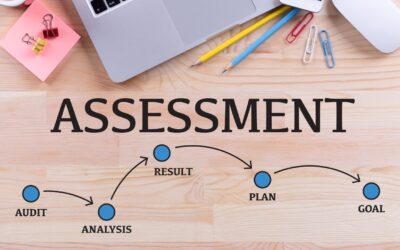
Understanding NDIS eligibility is essential if you or someone you support needs assistance navigating life with a disability. Whether you’re applying for the first time or looking to help a loved one, this article outlines who qualifies for the National Disability Insurance Scheme and who is eligible for the NDIS. Local area coordinators play a crucial role in assisting individuals and families to apply and let families understand the NDIS. They can help you understand the NDIS apply process and connect you with necessary resources, and how Re.Connect Support Services can guide you every step of the way.
The NDIS is Australia’s flagship program for accessing supports tailored to individuals with significant disability that needs disability specific supports. It aims to provide supports that build independence, enhance community life, and reduce the future need for intensive care.
Introduction to NDIS Eligibility
The National Disability Insurance Scheme (NDIS) is a government-funded program that provides supports and services to individuals with a disability. To be eligible for the NDIS, you must meet certain criteria, including being an Australian citizen, permanent resident, or Protected Special Category Visa holder, and having a significant disability that affects your daily life. The NDIS aims to promote social inclusion and empower people with disabilities to lead more independent and fulfilling lives. If you’re wondering if you’re eligible for the NDIS, you can start by reviewing the eligibility checklist and contacting the National Disability Insurance Agency (NDIA) for guidance.
Who Meets the NDIS Eligibility Criteria?

To access the NDIS supports or services, you must meet several core eligibility criteria to determine if you are eligible for the ndis:
- Be under 65 years of age when applying.
- Be an Australian citizen, permanent resident, or a Special Category Visa holder.
- Live in Australia and meet the NDIS access requirements. The NDIS is only available to individuals residing in Australia.
- Have a disability caused by a permanent impairment that substantially limits your ability to function independently.
- Require supports now to reduce your future need for help.
Local area coordinators (LACs) play a crucial role in connecting individuals with disabilities to various local resources and government services, especially for those navigating the NDIS application process.
Understanding Permanent Impairment and Functional Impact
A permanent impairment is one that’s likely to be lifelong. It may be physical, or it may include intellectual cognitive neurological sensory conditions, or psychosocial (such as a mental health condition). The NDIS focuses on how this medical condition creates a functional impact—that is, how it affects your ability to manage daily life activities.
If you require support to complete daily life activities—like getting dressed, preparing meals, managing transport, or communicating—you may be eligible. Additionally, various medical conditions can impact your ability to maintain a social life, further affecting your overall quality of life.
Are You a Permanent Resident or Protected Visa Holder?
The National Disability Insurance Scheme is only available to people who are:
- Australian citizens
- Permanent residents
- Or a Special Category Visa holder
So long as you meet the other criteria, being a permanent resident or protected visa holder means you may be eligible for the NDIS if you hold a protected special category visa .
Disability Caused by a Permanent Condition
Eligibility is not about your diagnosis alone, and a local area coordinator can help you navigate the process . Instead, it’s about how your disability caused by a permanent condition affects your everyday life.
Examples of conditions that may qualify include:
- Multiple sclerosis
- Autism spectrum disorder
- Cerebral palsy
- Mental health conditions
- Brain injuries
- Hearing or vision loss
- Long-term physical impairments
Even if your diagnosis is complex or misunderstood, what matters most is the functional impact on your support needs.
Early Intervention for Children Younger Than 9
If you’re applying for a child, especially children younger than 9, the NDIS offers a specialised pathway and specific supports to complete any necessary assessments. An early childhood partner can provide tailored supports as they work with you to assess developmental concerns and meet early intervention requirements. They can help determine if the NDIS is right for their child and offer disability specific supports or early interventions.
This pathway is also suitable for children with developmental delay, allowing early access to help build long-term skills and reduce your future need for more intensive support later.
Accessing Supports Through the NDIS

Here’s how to apply:
Step 1 – Gather Evidence of Disability Requirements
Start by collecting documents that show your disability requirements, such as reports from GPs, occupational therapists, or psychologists. These must detail how your condition affects your ability to participate in daily life activities.
Step 2 – Submit an Access Request Form
You will need to complete an Access Request Form and submit it to the National Disability Insurance Agency (NDIA). This is the formal process for being considered for NDIS funding.
Your Local Area Coordinator or early childhood partner can assist in filling out the Access Request and ensuring you include the right information.
Step 3 – Wait for Eligibility Assessment
Once submitted, the NDIA will assess your eligibility and determine your needs. If successful, you will receive access to a personalised NDIS support plan.
Assessing Your Eligibility
Assessing your eligibility for the NDIS involves determining whether you meet the disability requirements and early intervention requirements. To meet the disability requirements, you must have a permanent impairment that significantly affects your ability to complete daily life activities. The NDIA will assess your eligibility based on the impact of your impairment on your daily life, including your ability to participate in community life and access government and community supports. If you’re unsure about your eligibility, you can contact the NDIA or a Local Area Coordinator for support. They can help you understand the eligibility criteria and guide you through the application process.
What Types of NDIS Supports or Services Are Available?
The NDIS is designed to provide supports that are tailored to individual needs. Once approved, participants receive a budget for supports which may include:
- Personal care and in-home support
- Therapy and allied health services
- Mobility aids and assistive technologies
- Transport services
- Support for education, work, and community supports
- Help with support plans and life transitions
These disability specific supports aim to build independence, reduce long-term reliance, and help individuals engage fully with community life. They also focus on providing support to build skills to help individuals achieve future independence.
Support Coordination and Planning
Once you’re deemed eligible for the NDIS, you’ll work with a planner to develop a support plan that outlines your goals, support needs, and funding. Support coordination is an essential part of the NDIS, as it helps you navigate the system and access the supports and services you need. A support coordinator can assist you in developing your support plan, connecting with service providers, and managing your funding. They can also help you build your skills and capacity to self-manage your NDIS plan. Additionally, support coordination can help you access disability-specific supports, such as therapy or equipment, to help you complete daily life activities.
NDIS and Your Daily Life
The NDIS is designed to support individuals with disabilities to participate fully in community life and access government and community supports. If you’re eligible for the NDIS, you’ll have access to a range of supports and services that can help you complete daily life activities, such as self-care, mobility, and communication. The NDIS can also provide supports to help you build your skills and capacity to live independently, including supports to help you manage your mental health and wellbeing. Furthermore, the NDIS can help you connect with other government and community supports, such as healthcare services and social programs, to ensure you receive comprehensive support.
How Re.Connect Helps With Support Needs and NDIS Access

Re.Connect Support Services is here to make sure you don’t have to navigate the process alone. We offer:
- Support with understanding your NDIS access requirements
- Help completing the Access Request Form
- Guidance for gathering strong medical evidence
- Support with plan meetings and linking to services
- Ongoing NDIS support coordination
We also help you connect with other government and community supports that may complement your NDIS plan or fill in service gaps.
Reduce Your Future Need for Intensive Support
One of the NDIS’s goals is to provide disability specific supports now to reduce the future need for support. and provide supports to children. and more complex assistance later. Whether through cognitive, neurological, sensory, physical theraphy, skill-building, or assistive equipment, early access to services can dramatically reduce your future need for long-term intervention.
This forward-thinking approach helps participants live independently, stay healthier, and enjoy more fulfilling lives.
Next Steps After Approval
If you’re approved for the NDIS, the next steps will involve developing your support plan and accessing the supports and services you need. You’ll work with a planner to identify your goals and support needs, and develop a plan that outlines how you’ll access the supports and services you require. You’ll also need to choose a service provider to deliver your supports and services. The NDIA will provide you with information and guidance to help you navigate the system and access the supports and services you need. Additionally, you can contact a Local Area Coordinator or a support coordinator for assistance with developing your support plan and accessing supports. They can also help you understand your NDIS funding and how to manage it effectively.
Don’t Delay—Let’s Get You the Support You Deserve

NDIS eligibility might seem complex, but with the right help, the process becomes clearer, especially when you understand the other supports available . If you or someone you care for has a disability caused by a long-term condition, the time to act is now.
Re.Connect is here to guide you through each stage—from first contact to ongoing plan reviews. Our focus is on helping you access the right NDIS supports or services, connect with other supports, including government and community supports and connect with other government resources. , and live a life filled with possibility and purpose.
Take the first step. Contact us today.


